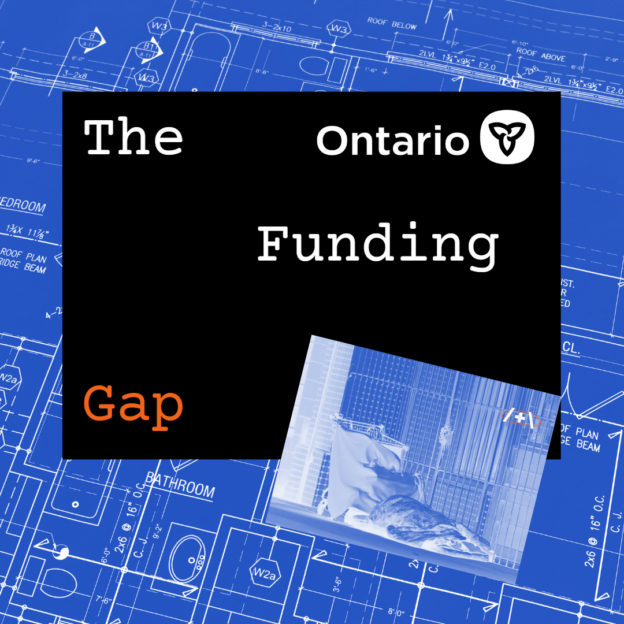It’s difficult to believe that it’s been over three years since Ottawa declared a homelessness emergency, and even more difficult to believe how much worse the situation has become. The number of people sleeping outside has doubled, and all shelters in Ottawa are at over 100% capacity.
The recent provincial funding decision for homelessness prevention and housing services in Ottawa is alarming. The province has allocated a mere 0.4% of the $202 million dollars committed for homelessness prevention in our city. This is inexplicable when compared to Toronto, which has been allocated $48 million, almost 60 times the amount allocated to Ottawa ($845,000) – even though we are the second-largest city in Ontario.
Such underfunding will result in a $37 million funding gap for Ottawa, leading to the cancellation of 54 supportive housing projects, and the cancellation of 570 to 850 new builds of affordable units per year. This comes on top of the loss of development charges for municipalities under Bill 23, which cities have used to support the construction of affordable housing and other community benefits.
Ottawa specifically faces unique challenges in tackling homelessness:
- It includes the significant catchment area of eastern Ontario and west Quebec.
- It’s experiencing a large increase in the number of asylum seekers (63%), especially as compared to Toronto (18%).
- It services a disproportionate number of Indigenous clients, estimated at about 32% of the overall shelter population.
The provincial government wants to build 1.5 million homes within 10 years, but Ottawa cannot meet its share of this goal with such underfunding.
As a housing-focused shelter, we urge the provincial government to reserve this decision and to increase Ottawa’s Homelessness Prevention Program (HPP) by $18 – 20 million to ensure that our city can support vulnerable community members with a home of their own. Ontario ended the last fiscal year with a $2.1-billion surplus, and it is unacceptable to not provide adequate funding to address the homelessness emergency in our community.
We cannot afford to ignore this issue any longer. Homelessness affects not just individuals, but our entire community. It affects the economy, the health care system, and the criminal justice system. We need to take action to ensure that everyone has a safe and secure place to call home.
You can make a difference. Join us in advocating for adequate funding for Ottawa’s Homelessness Prevention Program. Send a letter to your MPP and urge them to increase funding for our city.
Together, we can ensure that everyone in our community has access to safe, supportive, and affordable housing.



